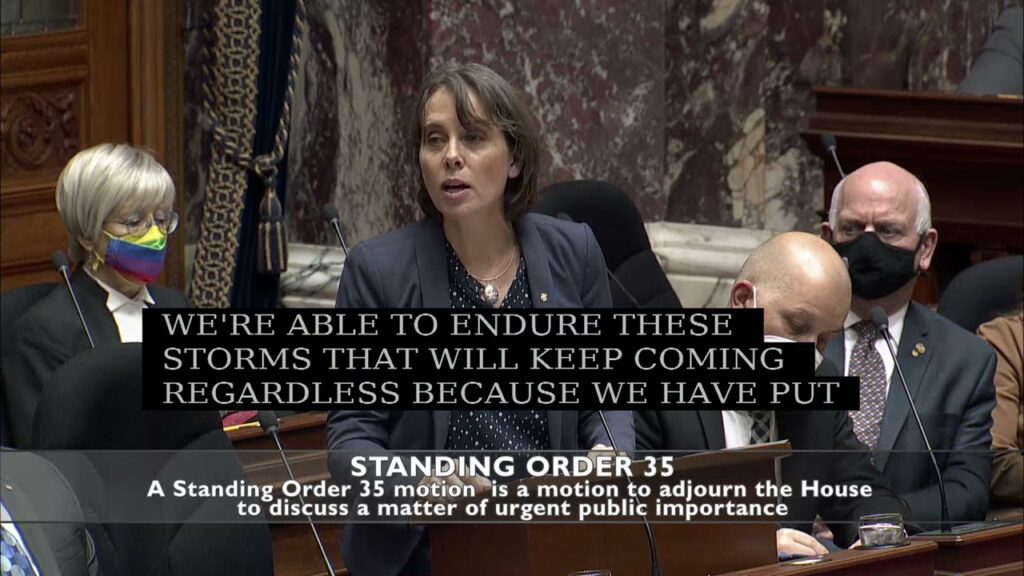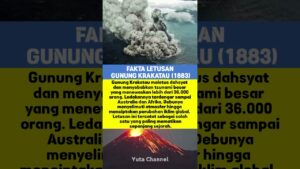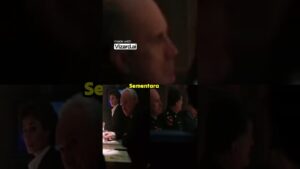
In his book, A Good War, Seth Klein talks about what an actual emergency response to the climate emergency would be. There are four key markers, he argues.
1. Spend what it takes to win;
2. Create new economic institutions to get the job done;
3. Shift from voluntary and incentive-based policies to mandatory measures;
4. Tell the truth about the severity of the crisis and communicate a sense of urgency about the measures necessary to combat it.
I will argue that number four – telling the truth – is absolutely essential for the other three to occur, and on this we failed.
In this legislature, climate change is talked about as if a suite of policy tools will be all that’s needed to mitigate and prepare for what’s coming.
In this legislature, 83 MLAs stood up over and over again in 2019 to support legislation that provided a six billion dollar incentive package to LNG Canada which will result in a massive uptick in methane emissions from fracking over the next decades, coupled with an increase in GHG emissions from liquified natural gas.
In this legislature, both the government and opposition parties permitted the Site C dam, which will wipe out some of our best agricultural land in this province – the capacity to provide food for up to a million people. This project also undermined what we should be doing, which is to create local, clean energy production in our communities, so we could a level of local energy security in the face of these worsening and increasingly disruptive storms.
In this legislature, the truth about climate change is being ignored when we ignore the impacts of clear cut logging, the loss of biodiversity and extirpation of species, and the need to treat the land with the respect if we want it to help us survive these very-not natural disasters.
These disasters have been literally fueled by our collective inability to act as though climate change is an emergency.
The truth is our world climate is going to continue to change at an accelerating rate. And it’s either going to be at a pace that we attempt to control because we rapidly transition our economy so that our neighbourhoods, communities, and most importantly, our natural systems all require a fraction of the energy we use now, that we are no longer knowingly wasteful, and that we are able to endure these storms – that will keep coming, regardless – because we have put every decision, every policy, every piece of legislation through the lens of the climate emergency.
Or…our world is going to change because as the storms, droughts, fires, and heat waves become more frequent and more powerful, which they will, infrastructure will continue to fail, supply chains will continue to falter, and our resilience will continue to erode – because we just aren’t able to generate the political will for transformation.
If we truly believe that we are in a climate emergency, then we don’t need amendments to forestry legislation in here – we need an absolute transformation of how we think about forests, and how we must manage them in an emergency.
Do we want more forestry jobs? No more clearcuts, only selective logging, and Indigenous-led restoration in every part of this province of the ecosystems to restore biodiversity, carbon capture, water capture, habitat, and the web of life that should exist in all forests. That’s decades of jobs that will make all of our communities more resilient and stronger.
As humans, we have yet to truly rise to the truth and reality of climate change – but in emergencies, we rise to our very best selves. There will be endless stories of generosity, sacrifice, compassion, and kindness from this disaster. We are truly designed to operate in community, in connection, with each other. And if we are to be truthful about climate change, then we need to orient our thinking and our behaviour in all ways towards that collective, community-oriented, compassionate, and cooperative mindset. We must let go of the story that we are in competition with each other and embrace the truth that we need each other, that we need to see our communities as being only as strong as the people who are struggling the most. Climate action has to be about a re-orientation of how we see ourselves in society – not as individuals in competition, but as people connected to each other in countless ways, and connected to the natural world around us. We have this in us. It shows up in these emergencies. And so let’s not let it go in between. At its very best, emergency preparedness is about creating deeply resilient, deeply connected, communities in which we all operate from a place of caring for each other.
source




Amen sister. Thank you.
#climatecrisis
That is the FIRST time I have heard MS. FURSTENAU speak with the necessary passion and precision that this subject deserves. Finally.